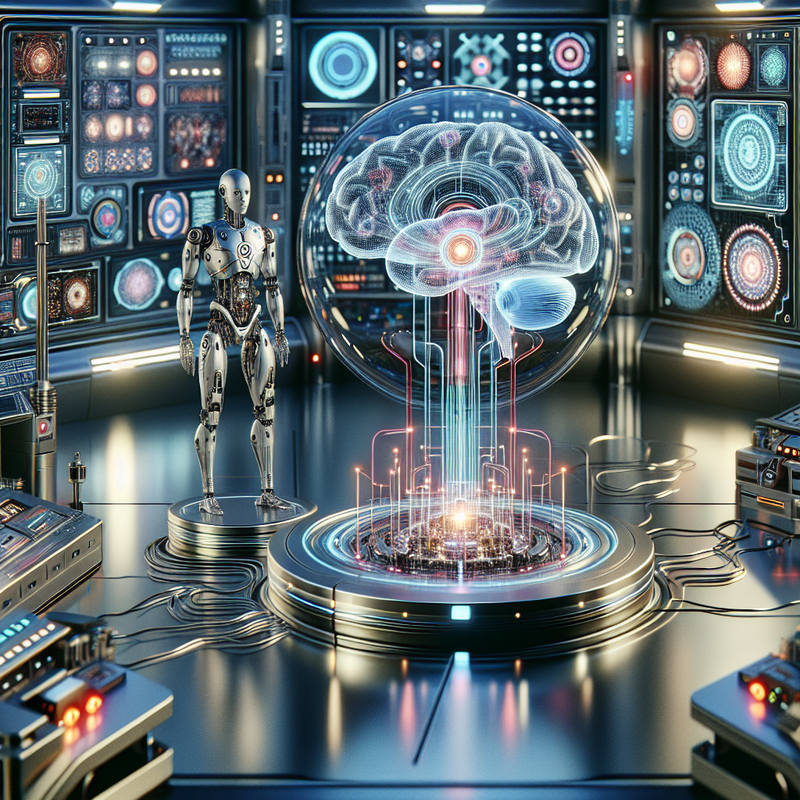The Intersection of Brain Science and AI: Pioneering Healthcare Transformations
Renowned tech corporations and leading researchers are merging the capabilities of neurotechnology with the prowess of artificial intelligence (AI), embarking on an era that promises extraordinary healthcare innovations. For years, the foundation has been set by experiments with implantable brain signal interpreting devices.
These technological marvels have evolved with AI’s help, making it feasible to convert neural patterns into verbal instructions, granting new forms of communication to individuals with motor neuron diseases such as ALS. One remarkable example is Rodney, an ALS patient who, thanks to Amazon’s Jeff Bezos and Microsoft’s Bill Gates’ financial support, operates a computer via a Stentrode device, implanted by Synchron, through sheer mental effort.
This emerging domain extends its influence beyond healthcare, forecasting a shift in consumer electronics. The neurotechnology market is projected to surge from a 2023 valuation of around $15 billion to an anticipated $55 billion by 2032, according to Precedence Research. Big-name companies like Meta and Apple are actively developing technologies to interpret brainwaves and thoughts without surgery, potentially revolutionizing traditional tech interfaces.
Navigating the Crossroads of Neuro-Innovation and Personal Privacy
Amidst the burgeoning progress, the delicate matter of privacy enters the spotlight. Futurist and tech ethicist Nita Farahany underscores the urgency of safeguarding our cognitive data: she suggests that as we have relinquished nearly all aspects of our privacy, the sanctity of our mind must now be fiercely defended.
The sector reached a pivotal moment when Elon Musk’s Neuralink ventured into human trials with its brain-computer interface (BCI), experiencing challenges with malfunctioning electrodes. Nevertheless, Neuralink maintains a positive outlook regarding the device’s prospects.
Apple has indicated interest in this realm, securing a patent that points to incorporating EEG functionalities into devices like AirPods, potentially monitoring brain activity. Similarly, Meta is delving into the brain’s linguistic processing capabilities, harnessing AI to recreate visual images from mere mental activity.
Yet, these trailblazing efforts encounter resistance. Advocates championing “neurorights” call for legal safeguards to preserve the sanctity of mental experiences, with states including Colorado setting precedent by enacting protective measures. Dr. Rafael Yuste, a neuroscience authority at Columbia University, draws attention to the current regulatory void, likening it to a lawless frontier.
As technological giants charge forward, exploring the vast potential of neurotechnology, the industry is faced with the dual challenge of harnessing the human mind’s capabilities while ensuring the preservation of cognitive privacy.

